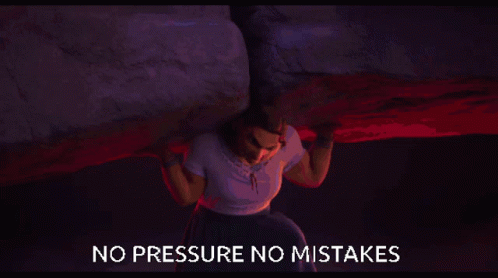Y’all ever think about how deep some interview questions are?
I was in an interview loop for a QA leadership role last week and someone asked “Tell me about a time you got in your own way”. Which made me smirk because had an answer ready. Because I’ve been unpacking that exact pattern. In therapy 😅.
Without missing a beat, I said: “I have a reflex to solve problems that should probably be escalated. I’ve learned to catch myself doing this, but my first instinct is still to make things work rather than surface that they aren’t working and why”.
The interviewer looked surprised (maybe expecting something more generic?) but, what can I say? It’s true, and I'm honest 🤷♀️
I look back now and recall moments where I didn’t advocate for more support. Not because I made a strategic call, but because it literally didn’t occur to me that asking was an option. I defaulted to taking on too much, for myself and my team, out of habit. Not intention.
And I know I’m not the only one.
Especially for folks with similar backgrounds (first-gen, first-born, raised to be dependable), it’s easy to slip into being the person who just quietly holds it all together for everyone. You don’t complain. You don’t let things drop. You just handle it.

And that looks like resilience. It gets praised. But invisible work is still work. And unspoken tradeoffs are still tradeoffs.
I grew up poor.
I know that’s an odd thing to talk about in a post about leadership, but stick with me.
I was the eldest kid, eldest daughter, in a single-parent, first-generation immigrant family. That meant a lot of things, but mostly it meant I was the one figuring stuff out. Translating school forms and applications for public assistance and exam prep materials for my mom’s cosmetology license. Cooking dinner with whatever we had on hand, which often meant being either very creative or very boring. Solving problems I’d trained myself to notice before anyone else even saw them.
I never really felt like we had any backup. I know now that wasn’t true, but back then asking for help never felt like an option. There never really seemed like there was anything “more” to ask for.
So, I learned to make do.
That reflex? To figure it out no matter what? It’s been one of my greatest strengths. I’ve leaned on it frequently over the years. It’s helped me lead through ambiguity, rally teams after nearly annual reorgs and layoffs, and ship the highest-quality software we were able to achieve with constraints around headcount, tooling, or time.
But here’s the thing about reflexes: they don’t ask questions. They just act.
And with experience (and, yes, therapy), I’ve had to learn when that reflex is helping and when it’s no longer serving me.
When I jump in to solve everything myself, am I modeling resilience… or overfunctioning?
When I make things work with what I have, am I being resourceful… or avoiding the harder conversation about what’s missing?
Now, I know to pause before I work my way through a problem and ask whether this a time to be resourceful, or whether there’s a systemic issue I'm glossing over.
Sometimes, the answer is still to get scrappy. But now, at least, it’s a choice that I’m making.
This matters because leadership isn’t always about solving problems with what you’ve got. It’s also about advocating for what your team needs, and making it clear where the gaps are. I don’t want to lead a team that survives under-resourcing. I want to lead a team that expects to be supported.
“Making do” will always be part of my OS. But I'm learning when to stretch and when to say: this isn't a people or product problem, it's a systems problem.
